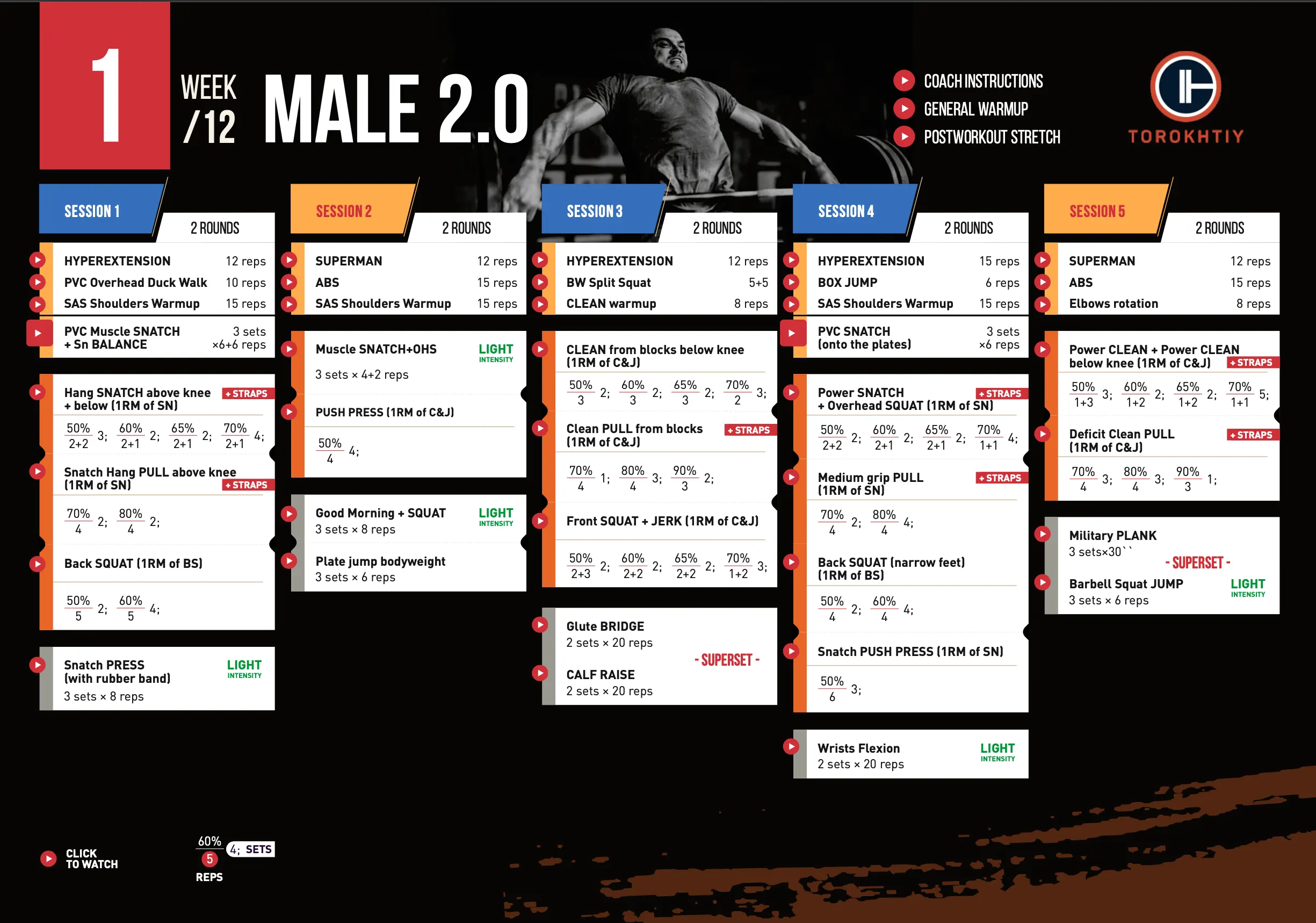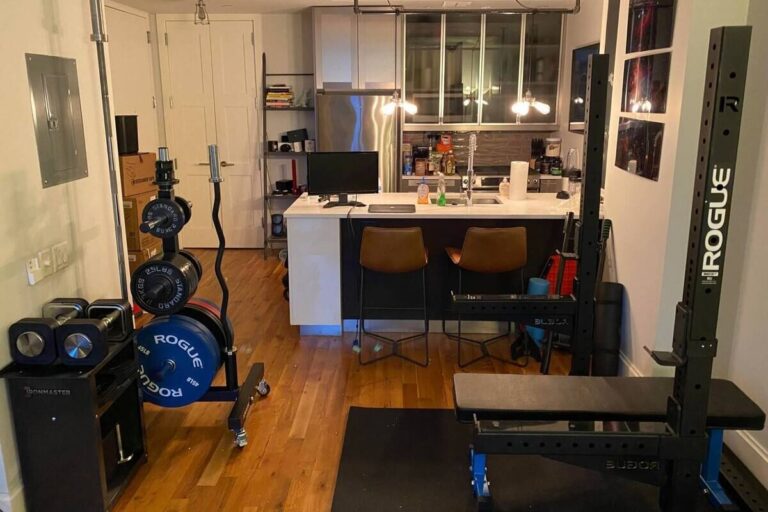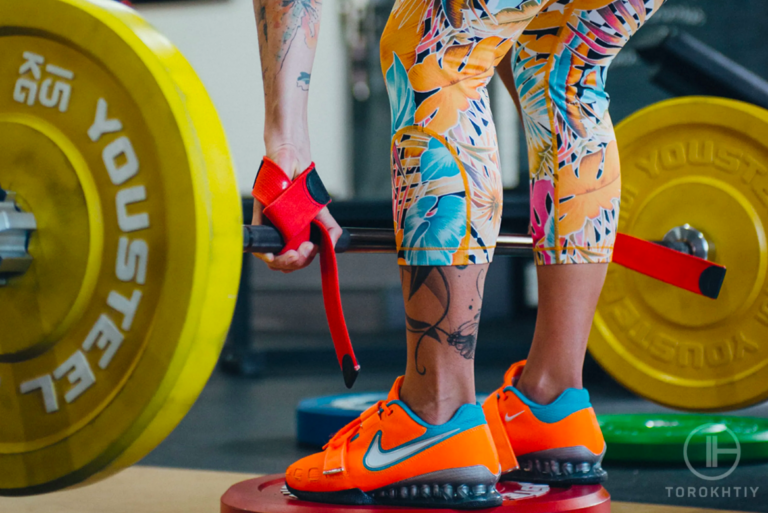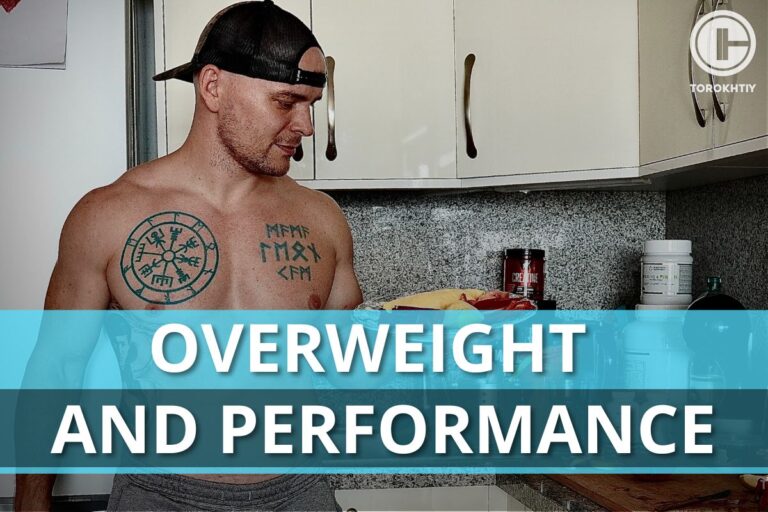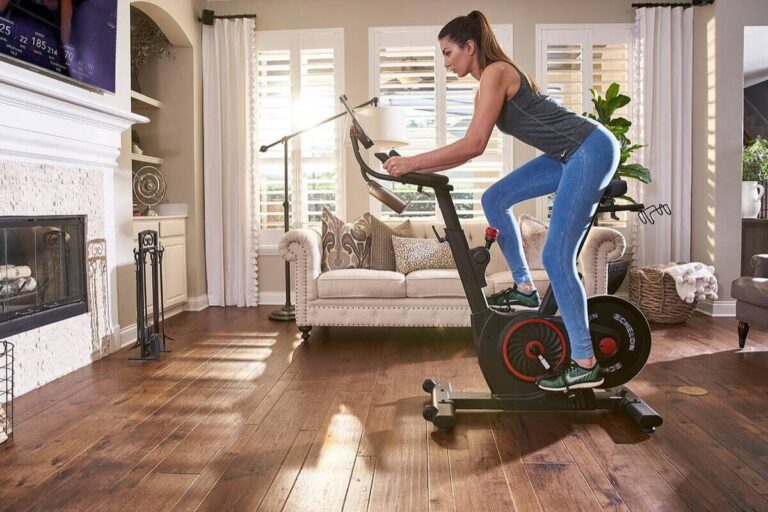The Conjugate Method 101: How It Works and Benefits

The conjugate method is sometimes called the Conjugate Westside-Bar method or Conjugate Westside method. This cutting-edge approach for athletes, powerlifters & bodybuilders was elaborated by Louis Simmons, owner of the Westside Barbell Gym in Ohio. The Westside approach implies the rejection of the widespread principle of breaking the annual cycle into so-called. “season” and “off-season”. There are no successive phases of hypertrophy, power gains, speed training, etc. All these stages proceed in PARALLEL to each other (sometimes this approach is called conjugate periodization). It also follows from this that you are in constant readiness for the manifestation of maximum effort, i.e. to competitions or MAXOUT sessions.
The conjugate training method is a program that is primarily designed to build strength. It seeks to enhance your weak regions as well as strengthen your muscles and boost muscular endurance.
You must faithfully adhere to the appropriate training programme in order to fully benefit from it. Continue reading to learn how to apply the conjugate approach, how it functions, and what its key advantages are.

What Is The Conjugate Method?
The following exercises (Squat, Bench press, Deadlift) are modified as part of the Conjugate Method powerlifting training programme.
Each week you do 4 sessions including the specific types of workouts:
- lower body dynamic effort
- upper body dynamic effort
- lower body maximum effort
- upper body maximum effort
To ensure recovery, an interval of 72 hours is planned between maximum and dynamic training for one part of the body. All workouts will include 4-6 exercises.
The week looks like this: dynamic squat on Friday, dynamic bench on Sunday, max squat/deadlift on Monday, and max bench on Wednesday. This breakdown by day is most convenient if the competition takes place on weekends.
Training time is strictly limited (as a rule, no more than 60-70 minutes, and the main load should be completed within 45 minutes) and, accordingly, pauses between sets.
Thу conjugate training also includes special and additional exercises aimed at strengthening your weak points. These variations aid in preventing boredom and teach you how to push yourself in various ways.
The composition of the conjugate periodization helps athletes who want to build strength & muscles using a varied set of exercises that emphasize maximum & explosive strength.
By switching up your exercises, you can consistently push yourself and train your body in various ways.To diversify drills, it is possible to use: rubber bands, chains, and barbells of various shapes.

Methodology
Let’s take a closer look at what these workouts entail.
Maximum Effort Method
Stimulates the nervous system, contributing to the development of coordination both between motor units within each working muscle, and between all muscles involved in the movement as a whole. A significant disadvantage is the impossibility of working with weights exceeding 90% for more than three weeks. Hence the need to change the maximum effort movement every 1-3 weeks. Number of repetitions in a set: 1-3. If the athlete is faced with the task of gaining muscle mass, then for a while this number can be increased up to 6.
For maximum effort, only one exercise is selected (the list is presented below), in which we conduct a good warm-up. You should not take big steps between warm-up sets (optimally 10-20 kg).
Repetition Method
The best method to stimulate muscle growth. With its help, all additional exercises and utility room are performed. In the original, the essence of this approach is “working with non-maximal weight to failure.” This is not practical for powerlifting, so Louie Simmons conjugate methoduses a modified version where the exercise is stopped when there is a distortion in the technique. In addition, by the end of each set, there should always be strength left for one or two repetitions.
The amount of work that contributes to maximum hypertrophy is individual: someone grows from a small number of repetitions in the set, someone from a large number. We find optimal work in 5-8 sets of 6-15 reps.
Each additional or special exercise is recommended to be changed every 1-5 weeks. Otherwise, it makes sense to change the mode of its execution, i.e. play with volume/intensity.

Dynamic Force Method
The essence of the method is to strive to lift moderate weight as quickly as possible. This contributes to the development of explosive strength and increases the rate of development of maximum strength.
Start at 50% and watch your speed: if you lose it as the weight of the bar increases, then reduce the weight. In order to ensure proper recovery, speed training should be performed no earlier than 72 hours after max effort training.
The volume of work in dynamic exercises is due to Prilepin’s data, where at an intensity of 50% we should focus on 24 reps. On the other hand, you should remember about the time under tension (from the moment the implement is removed from the racks until the lift is completed) when performing competitive attempts. Empirically, Simmons came to the conclusion that in the same time you can do two high-speed movements in the squat, and three in the bench press. Based on this, the dynamic training of the squat consists of 12 sets of 2 reps, and the bench press consists of 8 sets of 3 reps.
The duration of pauses between sets is critically important: it should not exceed 1 minute, because, on the one hand, we need to load the fast fibers, and on the other hand, we need to force their maximum number to start working (the body will have to activate additional motor units due to the fact that that already working fibers do not have time to recover). From time to time, various types of jumps and other plyometrics may be included in the plan to develop explosive strength.
Exercises For Max Squat / Deadlift Day
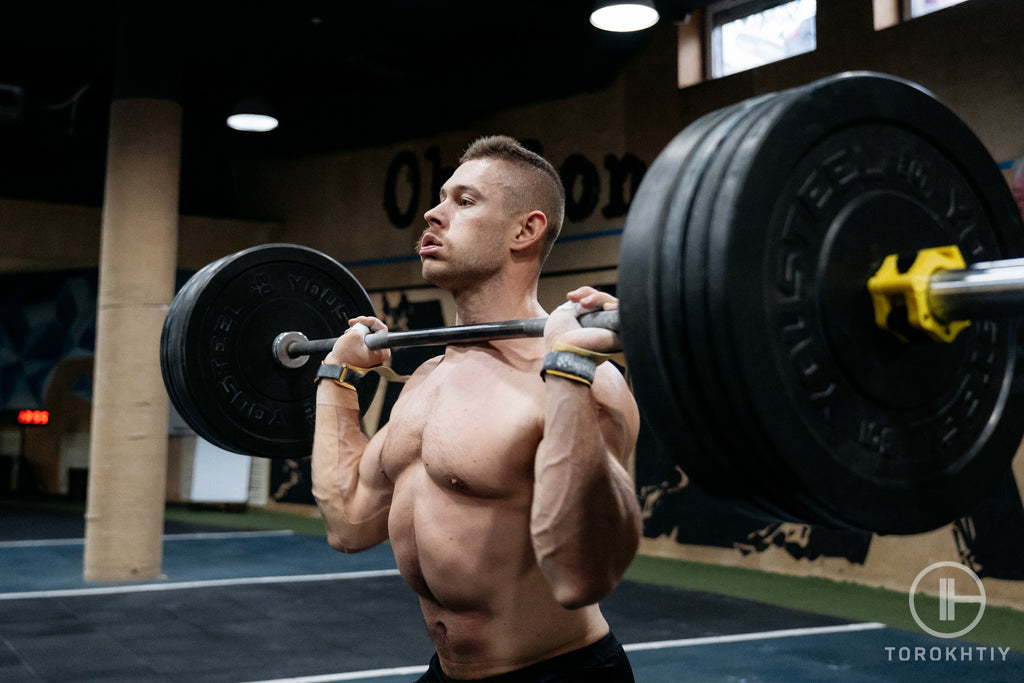
Max Effort Exercise:
– Zercher Squat for 1 rep
– Hack Squat 5-8 reps (you can also do is as a special exercise, but with a lighter weight for 15-20 reps);
– Block Deadlift in not competitive stance for 1 rep (if performed for 2-3 weeks in a row, then reduce the block height every week);
– Deficit Deadlift;
– Squats with a load on the belt for 3-5 reps (you can also do is as a special exercise, but with a lighter weight for 15-20 reps);
– Good morning;
– Good morning + Squat;
– Sitting Good morning;
– Anderson`s Good morning;
– Hyperextension;
– Clean Pull;
– Half Squat
10-14 days before the meets, reduce the weights in the main movements, but leave (and sometimes increase) the number of additional exercises.
Special Exercises:
– Good morning (less deep for the squat, deeper for the deadlift);
– Zercher squat;
– Lunges & Bulgarian Squats;
– Variations of machine pulls;
– Standard and reverse hyperextensions;
– Variations of the Romanian Deadlift;
– Leg curls and glutes variations.
Additional Exercises:
– Dumbbell or machine core tilts;
– One arm deadlift (bar on the side);
– Landmine rotations;
– ABS variations;
– Reverse hyperextension;
Exercises for Max Bench Press Day:
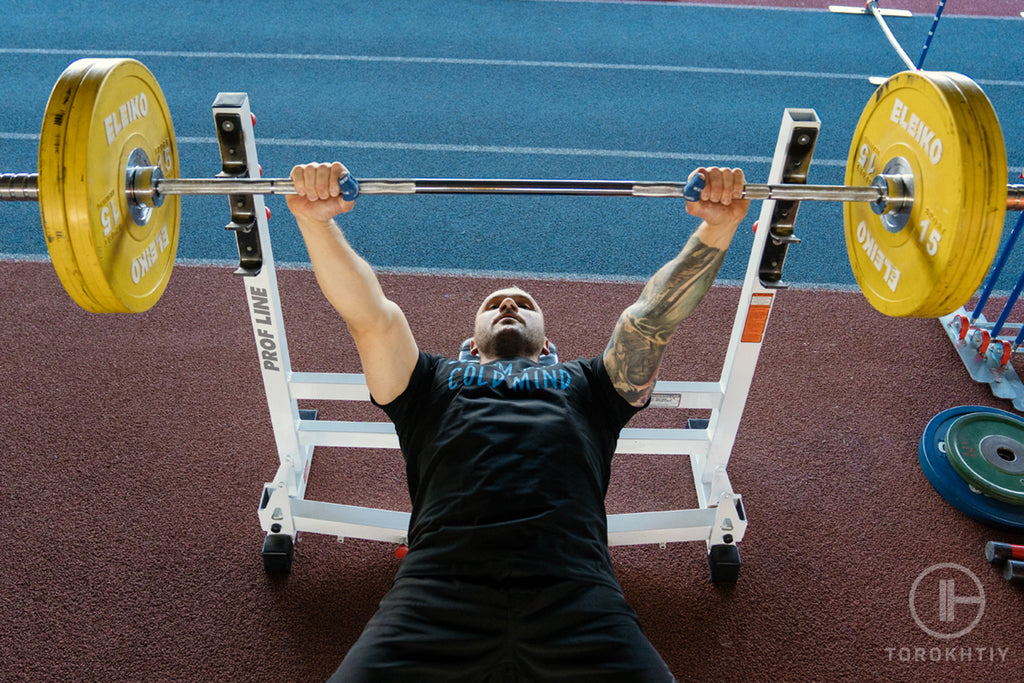
Maximum effort exercises:
– Paused Bench press on the floor for 1 rep;
– Paused Bench press for 1 rep;
– Lockouts with a narrow grip for 1 rep;
– Inclined bench press with a narrow grip (a single is performed and after a maximum of 5 reps);
– Seated press (from racks at chin height) for 1 rep;
– Dumbbell presses (on the floor, inclined down and upside down, sitting, lying down) are performed for 10-20 reps to failure;
– Push-ups also to failure;
– Wide bench presses are performed on a record for 6 reps;
– Partial dips for 3-8 reps.
Special exercises:
– Floor press;
– French Press variations;
– Decline narrow grip bench press;
-Triceps extension variations;
– Pushup variations;
Additional Exercises:
Lat exercises:
– Horizontal Row;
– Pull-ups;
– Dumbbell or bar incline row;
– Lat pulldown;
Delts and upper back:
– Dumbbell chin pull;
– Bradford press;
– Dumbbells flies;
– Dumbbell paused front raise;
– Dumbbell press with one/two hands.
Exercises For Speed Squat / Deadlift Day

Dynamic Force Exercise
– Box squat (at or slightly below parallel). Weight here increases in a wave that can last from 3 to 5 weeks. As the weight increases, the volume can be reduced. For example, 12 sets of 2 times for the first 3 weeks (50, 52.5 and 55%) and 10 x 2 for the last 2 weeks.
Once every 2-3 weeks, instead of Squats, you can perform speed Deadlift in 6-8 sets, 1 rep at about 50-70% of the RM.
Special Exercises:
Here, in 3-6 sets of 5-8 reps, a movement that loads the hamstrings is used (see the list on the day of the maximum Squat).
Additional Exercises:
One to two ab exercises for 3-5 sets of 6-12 reps (see list on max squat day).
One movement on the lower back.
Exercises For Speed Press Day:
Dynamic Force Exercise:
– Speed bench press without pause;
– Speed bench press with rubber bands;
– High-speed bench press from the limiters of the power rack with a pause;
– Speed press with a curved bar;
– Press from the floor with a pause;
– Incline & decline bench press. Rubber bands are welcome;
– Lightweight version of the bench press. The rubber bands are attached at one end to the bar, and at the other end to the upper crossbars of the power rack, facilitating the weight of the bar located on the chest. As you press out, the tension force of the bands weakens, and the projectile becomes heavier and heavier. Chains can also be added.
– Ballistic press. We lower the barbell quickly, almost drop it, and, trying to nullify the time of its static delay, squeeze it up as quickly as possible. We don’t touch the chest. It is not recommended to press in this mode on max effort days.
The weight is constant from week to week. The grip width changes in each set within the marks on the neck (81 cm). In 10% of the sets throughout the cycle, periodically add weight (10-15 kg) and check if the speed is decreasing (if so, then next time you need to add less).
Special exercises:
Triceps movement with high intensity 2-3 sets of 2-8 reps (see the list on the day of the maximum press).
Additional exercises
Lats, delts, maybe triceps. All movements in 3-5 sets of 8-15 reps (see list on max bench day)
Does the Conjugate Method Work?
The conjugate training program provides numerous advantages in terms of absolute strength, which is the program’s primary objective. Although you could still feel some of these advantages, it is not intended to help you lose weight or enhance your fitness or health. The major objective of the training program is to increase strength.
Do Diet And Lifestyle Help See Results?
To take all benefits from the conjugate workout program, try to follow these dietary and lifestyle recommendations.
Diet
Follow a balanced nutrition plan that ensures you obtain enough calories to achieve your exercise objectives. Put wholesome protein, carbohydrates, and fats on your meal. Eat less food that is deep-fried, highly processed, or loaded with sugar. Limit or avoid alcoholic, carbonated, and sugary beverages.
🔻12-Week Olympic Weightlifting Program by Oleksiy Torokhtiy
Transform your strength and technique with our 12-week Olympic Lifting Program, made up of 5 sessions per week.
It is designed by Olympic Champion for athletes who are looking to set new personal records safely in Snatch or Clean & Jerk.
Program details:
- 12 weeks + 2 bonus weeks
- 45-120 minutes per session
- 50+ specific exercises/98 video instructions
- Primary focus on Olympics Lifts
- Full access to all training content
- Weekly video coach instructions
Start now and boost your weightlifting results!
Life Style
It’s crucial to have a healthy lifestyle in addition to eating a balanced diet and working out frequently. Even though you might be motivated to drive yourself to the edge, it’s crucial to pay attention to body & organism and stop if you feel any discomfort, exhaustion, or sickness.
Give yourself enough free time so that you can recover and unwind. Make sure you get up to 7-9 hours of sleep if possible. Steer clear of overtraining, which can leave you feeling stressed out and possibly cause burnout. Find time to engage yourself in enjoyable activities. Massage, breathing practice, meditation or other calming exercises can help you reduce stress.

Conclusion
Athletes, powerlifters and bodybuilders who wish to increase their strength, and muscular mass may consider the conjugate protocol. The modifications to this exercise program offer countless opportunities to make your workout engaging and unique. You may overcome your restrictions and enhance your performance by exercising on different body parts and focusing on your weak regions. Stay consistent in your practice, keep your eyes on your objectives, and push yourself to grow.
Why Trust Us?
With over 20 years in Olympic Weightlifting, our team does its best to provide the audience with ultimate support and meet the needs and requirements of advanced athletes and professional lifters, as well as people who strive to open new opportunities and develop their physical capabilities with us.
By trusting the recommendations of our certified experts in coaching, nutrition, dietology, and sports training programming, as well as scientific consultants, and physiotherapists, we provide you with thorough, well-considered, and scientifically proven content. All the information given in the articles concerning workout programming, separate exercises, and athletic performance, in general, is based on verified data. We ensure that you can rely on our professionals’ pieces of advice and recommendations that can be treated as personalized ones which will benefit you and fully meet your needs.
The product testing process is described in more detail here
Author: Sergii Putsov
Head of Sport Science, PhD
Best Results: Snatch – 165 kg,
C&J – 200 kg
Sergii Putsov, Ph.D., is a former professional weightlifter and National team member, achieving multiple medals in the 94 kg weight category at national competitions. With a Master’s degree in “Olympic & Professional Sport Training” and a Sport Science Ph.D. from the International Olympic Academy, Greece, Sergii now leads as the Head of Sport Science. He specializes in designing training programs, writing insightful blog articles, providing live commentary at international weightlifting events, and conducting educational seminars worldwide alongside Olympic weightlifting expert Oleksiy Torokhtiy.


